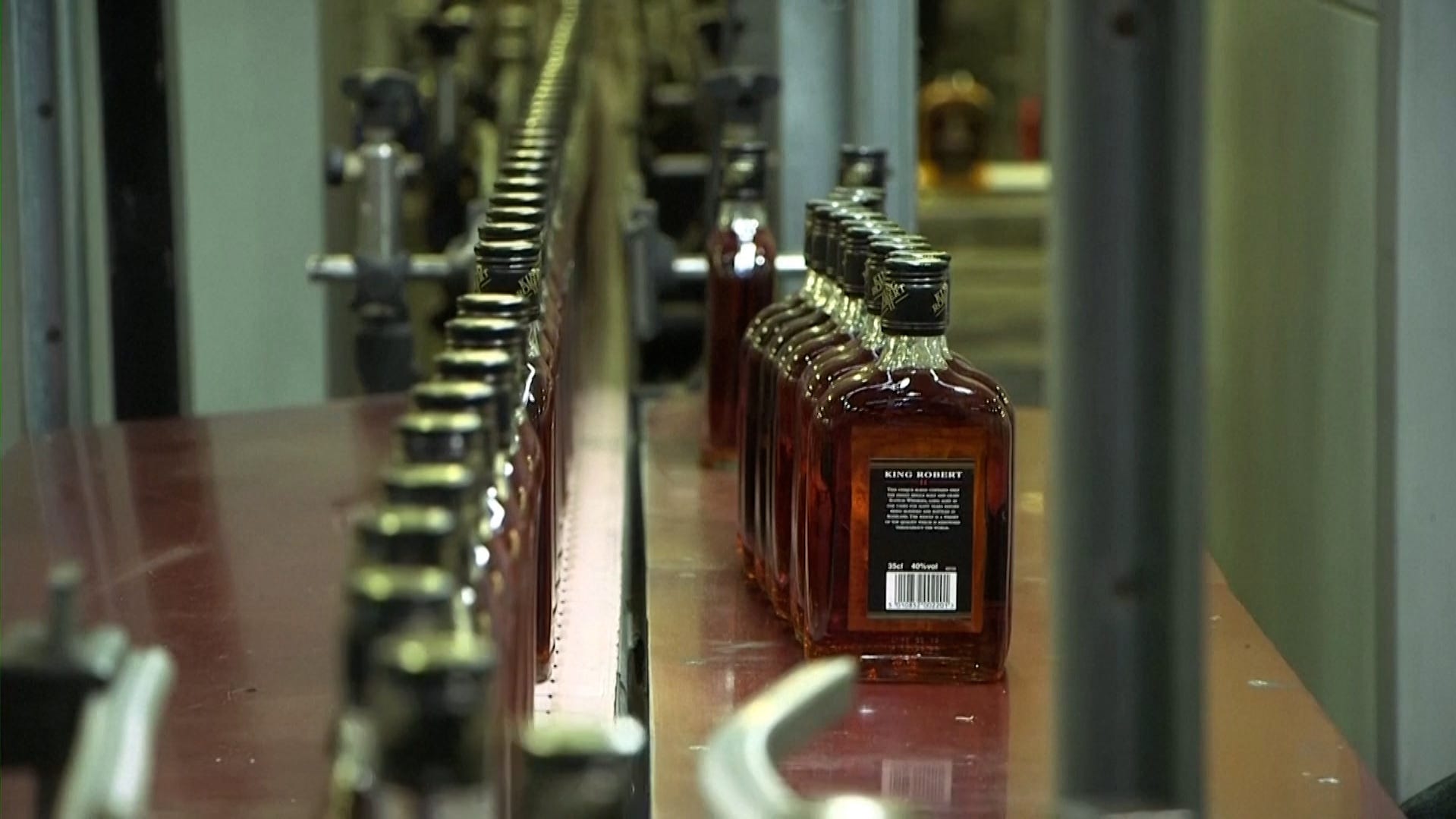
Surgeon General pushes for cancer warnings on alcoholic beverages
A new advisory recommends updated warning labels on alcohol, similar to those on cigarette packs.
For the companies that brew, ferment, distill, bottle and sell alcohol in America, the latest letter from the Surgeon General on alcohol and cancer goes down like a poorly worded toast.
For years, academic researchers and the media have been doing it sent a mixed message to Americans about the safety of moderate drinking. Some studies say modest amounts of alcohol may provide health benefitswhile others say that any form of drinking will harm you.
On Friday, America’s top physician, Dr. Vivek Murthy, issued an advisory urging the nation to focus on the dangers of alcohol, calling for explicit warnings about cancer on alcohol bottles and cans. The advisory names alcohol as the “third leading preventable cause of cancer” in America, after tobacco and obesity.
The news rattled shares in the alcohol industry, presumably on fears that adding a cancer warning to liquor bottles is unlikely to boost sales.
“Warning labels will not be an immediate death knell for alcohol producers, but it will amplify the long-term threats to the industry,” said Blake Droesch, an alcohol industry analyst, who spoke to Reuters.
Does Moderate Drinking Help or Hurt You?
Decades ago, much of the nation believed that moderate drinking was harmless and that red wine, in particular, can be a panacea. Some researchers still believe that responsible drinking is not harmful to the drinker. Alcohol industry leaders emphasized this point in response to the surgeon general’s warning.
“The American beer industry has been a champion of responsible consumption for decades,” the Beer Institute, a nonprofit trade association, said in a statement. “We encourage adults of legal drinking age to make choices that best suit their personal circumstances and, if they choose to drink, to consume alcohol in moderation.”
In recent years, researchers have drifted toward a more cautionary consensus: Even moderate drinking increases, however slightly, the odds that the drinker will contract a serious illness or die a violent death, a conclusion echoed in several investigations.
Still, many researchers continue to believe that moderate drinking promotes heart health, especially among older Americans. Federal alcohol guidelines still suggest adults can safely consume a drink or two a day: two drinks for men, one for women. Wine, beer and spirits industry executives tend to favor this view.
“I think these are very wise guidelines and consistent with the cultural practices that are alcohol for many people,” said Dr. Laura Catena from San Francisco, who is both a winemaker and a doctor.
The Wine Institute, a nonprofit trade association, invoked the federal dietary guidelines in response to the surgeon general’s opinion. “Because it is a complex issue, the Wine Institute always refers consumers to the most current (Dietary Guidelines for Americans) and recommends that anyone with concerns about consuming alcohol should consult with their health care provider,” the group said in a statement .
In one mail Friday the XDr. Vin Gupta, a researcher and media analyst, embraced the apparent contradictions in federal alcohol policy: “As a doctor who loves red wine, my view is: Two things can be true: Alcohol is a carcinogen, the data is clear, even at moderate intake; benefits for heart health and personal enjoyment probably still exist Pros and cons.
Alcohol bottles already carry a surgeon general’s warning, commissioned by Congress in 1988. It advises drinkers that alcohol can harm a pregnancy, impair your driving skills or cause other unspecified “health problems.”
The new guidance will add a specific warning about cancer.
“I would prefer to see an ingredient list”
Some in the beverage industry find the warning labels inappropriate.
“I prefer to see an ingredients list,” said Scott Crestodina, owner of Independent Spirits, a wine and craft wine store in Chicago.
For Crestodina, the latest surgeon general’s letter just adds to the financial headwinds his shop is already facing.
“I hope people who want to drink will seek out and support small businesses,” he said.
Share prices of some alcohol producers, including Anheuser-Busch and Molson Coors, fell on Friday after the release of the surgeon general’s advice.
The alcohol industry has managed declining sales on the heels of a boom during the pandemic. Inflation has raised alcohol prices by about 15% since the start of 2020, according to federal data. And with the election of Donald Trump for a second presidential term, the industry fears a new round of import tariffs that could push prices higher.
While slapping the word “cancer” on liquor bottles certainly won’t boost revenue, industry analysts disagree on whether a stronger warning label will do much to deter consumers.
“Most Americans tend to think that almost everything is okay in moderation,” said Michael Ashley Schulman, partner and chief investment officer at Running Point Capital Advisors, who spoke to Reuters. “As much as warning labels alone on cigarette packs did little to curb public smoking, I expect warning labels on alcohol to have little effect.”
Jeff Segal, owner of Domestique Wine in Washington, DC, said he believes a new generation of more severe warning labels on wine bottles could hurt sales, but only to a degree.
“People drink wine for a reason, and for most people that reason isn’t necessarily to live longer, it’s to live better,” he told USA TODAY, “although I would argue that wine can also help you live longer.”
Segal said most of his clients know the risks of alcohol consumption.
“Everything we do or consume is risky, from airplane travel to iPhones to sunshine to just sitting down at work,” he said. “But the risk of alcohol, in absolute terms, is still super-small for most people.”
Featured: Reuters
